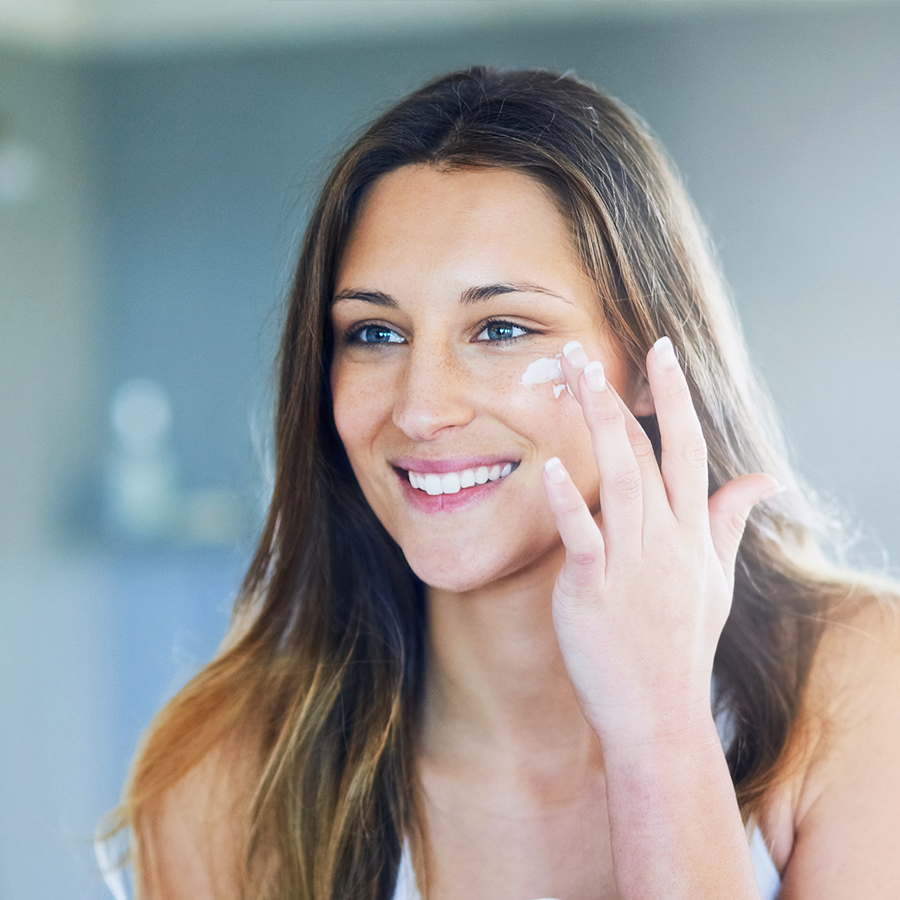Fine lines and wrinkles naturally develop on skin as you get older but they can appear earlier than normal when you’re exposed to things like smoking or too much sun, or have an unhealthy diet. This premature aging is the effect of oxidation, which in turn is brought about by free radicals.
Free radicals are generated by your body reacting to food, various bodily processes, as well as the environment. Too many free radicals can overrun your body and trigger oxidative stress, which may lead to adverse effects on health such as the aforementioned premature aging, as well as inflammatory diseases (like arthritis), heart disease, and neurological disorders, among others. If you’ve ever seen a peeled apple or an open avocado turn brown, then you’ve seen oxidation in action.
Enter: antioxidants, naturally occurring nutrients and enzymes that fight free radicals. As the name suggests, antioxidants are the primary defense against oxidative stress. They bind with free radicals and prevent them from doing damage to your system.
Antioxidants and Skin
Studies have shown antioxidants to have many health benefits, including protecting your skin. While sunscreen can shield your skin from harmful UV rays from the outside, antioxidants may be able to protect your skin from the inside. Antioxidants can also promote cell and tissue growth—important for maintaining skin’s youthfulness and keeping fine lines and wrinkles at bay. Skin after all is constantly breaking down and regenerating.
Antioxidants are thus a highly sought-after ingredient in skincare products. They’re either taken orally or applied topically. While there is some doubt as to the ability of antioxidants to penetrate the epidermis, studies seem to indicate that they can in fact be absorbed by skin cells.
Benefits of Antioxidant CoQ10
There are a number of antioxidants that exhibit some anti-aging properties. Vitamin C and Vitamin E (both said to boost collagen production), Vitamin B3 (reduces fine lines), lycopene (reduces damage that leads to wrinkles), catechins (found in green tea; reverses cell damage that leads to blemishes), resveratrol (protects against UVB rays) are just some examples. These antioxidants are normally found in whole foods like fruits, vegetables, and nuts.
An antioxidant called coenzyme Q10, or CoQ10, in particular has been found to have a number of benefits on skin:
Boosts antioxidative action. A study published in the journal Biofactors explains that naturally occurring CoQ10 diminishes over time on skin. A topical CoQ10 treatment was shown to be effective in replenishing the antioxidant and augmenting cellular energy metabolism. The results “demonstrated that stressed skin benefits from the topical Q10 treatment by reduction of free radicals and an increase in antioxidant capacity.”
Reduces effects of sun damage. In another study, also published in Biofactors, researches investigated the effect of topical CoQ10 on the prevention of photoaging, or skin aging due to sun damage from UV rays, brought about by increased cellular oxidation. CoQ10 was able to penetrate the skin, reduce the level of oxidation, and even reduce wrinkle depth.
May indicate skin cancer risk. Research published in the Journal of the American Academy of Dermatology seemed to find a link between low levels of CoQ10 and cancer. The researchers conclude, “Analysis of our findings suggest that baseline plasma CoQ10 levels are a powerful and independent prognostic factor that can be used to estimate the risk for melanoma progression.”
Antioxidants can be found in whole foods like fruits, vegetables, and nuts, so having a healthy, balanced diet can do wonders in increasing your body’s ability to combat free radicals and should be your first option when it comes to skin repair.
CoQ10 in particular can be found in red meat (with the highest concentrations in the liver and heart) and oily fish like salmon, tuna, and mackerel. Overcooking can destroy a lot of the CoQ10 content so keep an eye on that heat—or have some sushi instead. Vegetarians can get their CoQ10 from nuts and beans.
While you may be tempted to ingest loads of antioxidant supplements or slather on skincare products with antioxidants, keep in mind that our bodies run on a delicate balance of free radicals and antioxidants. Tipping the scales in favor of one or the other may have some negative effects. Before adding a daily supplement or starting a new skincare regime, it’s best to consult with your doctor regarding your specific needs and dosage.
sources:
https://www.huffingtonpost.com/





